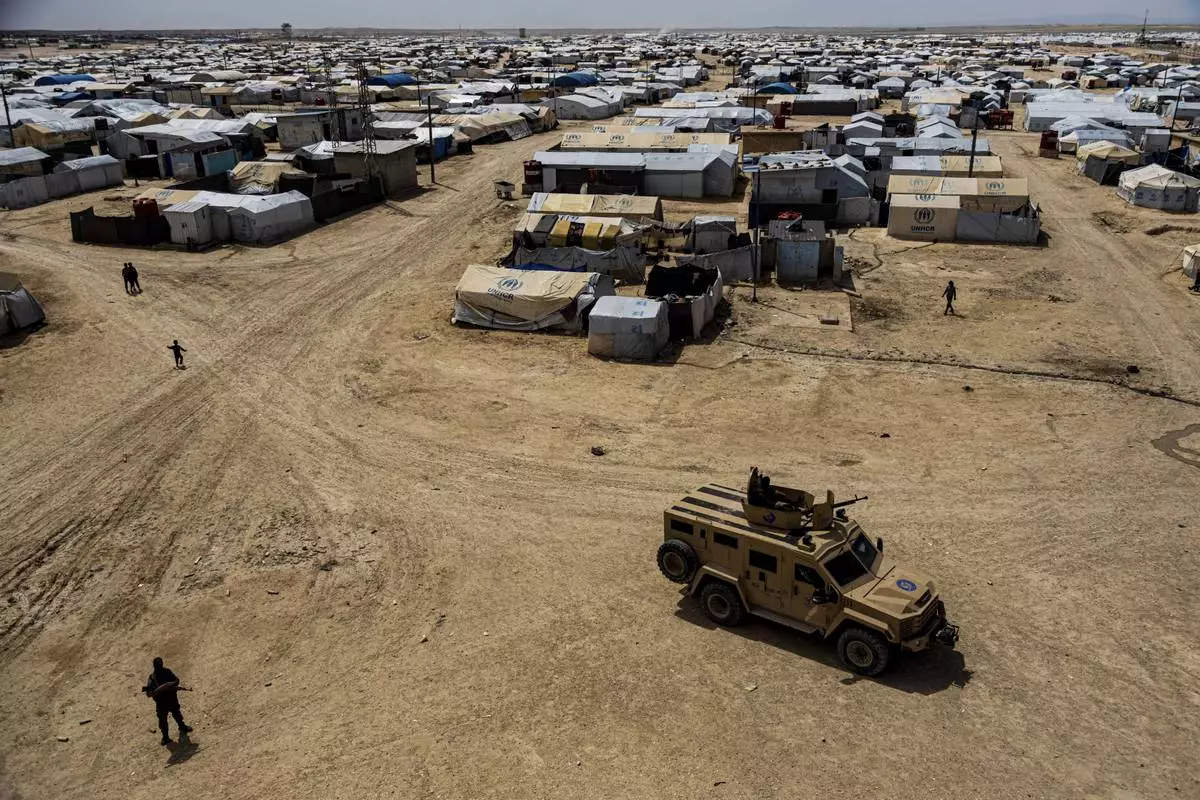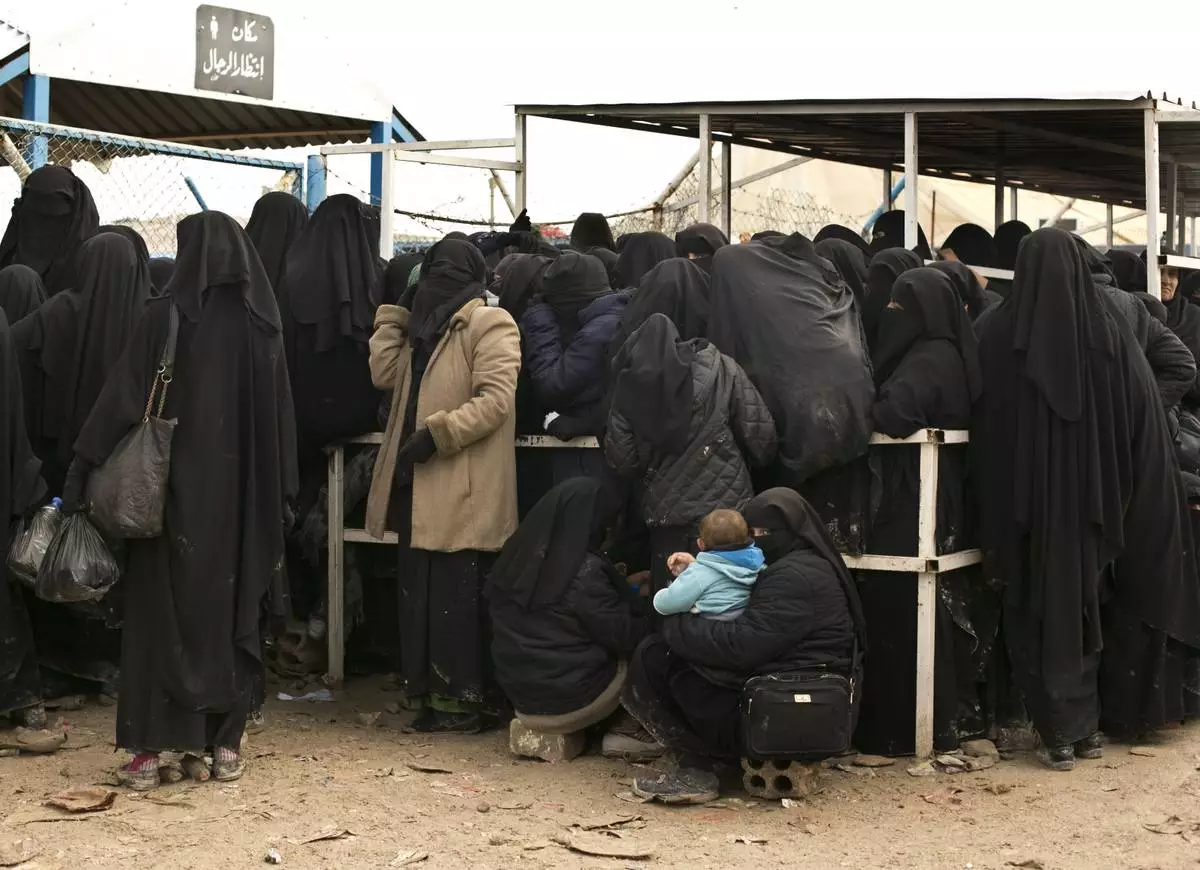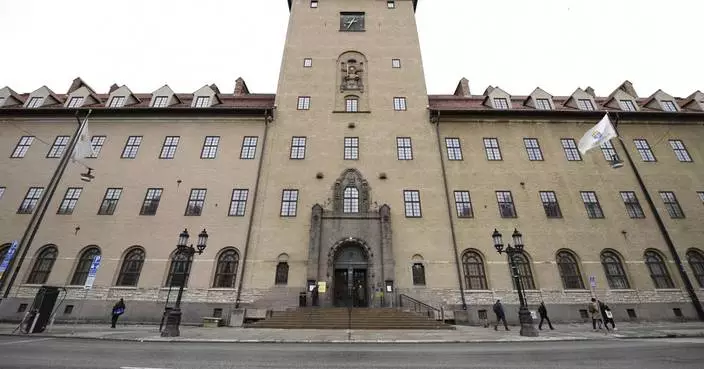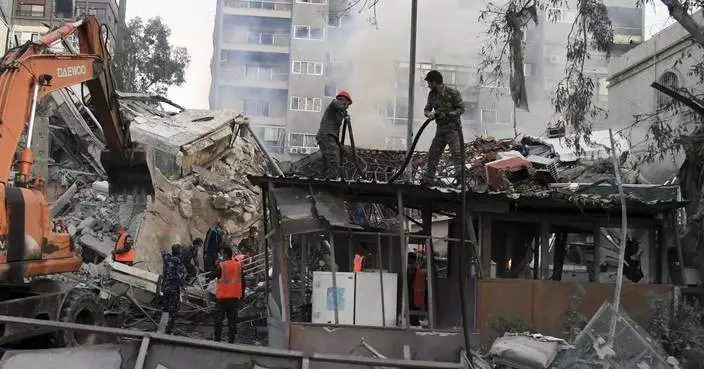U.N. investigators warned Wednesday that a war against some 10,000 extremists in northwestern Syria should not take 3 million people hostages. They added that the expected attack by Syrian troops on Idlib province would make other battles in the country look minor.
The U.N. Commission of Inquiry said government forces carried out three chemical weapons attacks in Syria and that violence displaced the largest number of people the year, the largest since the conflict began in 2011.
It warned that an attack on Idlib "with little regard for civilian life would generate a catastrophic human rights and humanitarian crisis." It called on parties to the conflict to protect civilians, as required by international humanitarian law.
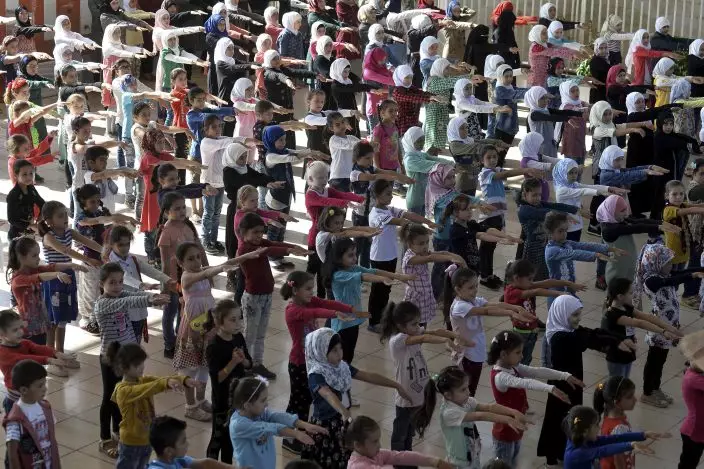
In this Tuesday Sept. 11, 2018 photo, schoolchildren attend an event at their school's yard, in the northern town of Jisr al-Shughur, Syria, west of the city of Idlib. Syrian government forces, backed by Russia and Iran, have been massing troops for weeks in preparation for an attack on Idlib province, the last major rebel stronghold in the country. The U.N. has warned that a battle will spark a humanitarian catastrophe. (Ugur CanDHA via AP)
Government forces have been massing troops on the edge of Idlib in preparation for an offensive on the last major rebel stronghold in Syria.
Government bombardment of Idlib has dropped as of Tuesday after days of stepped up bombing campaign against the Syrian opposition's last bastion in the country.
A summit between Russia, Turkey, and Iran on Friday failed to bring about a settlement. Iran and Russia are main backers of the government while Turkey backs the opposition.
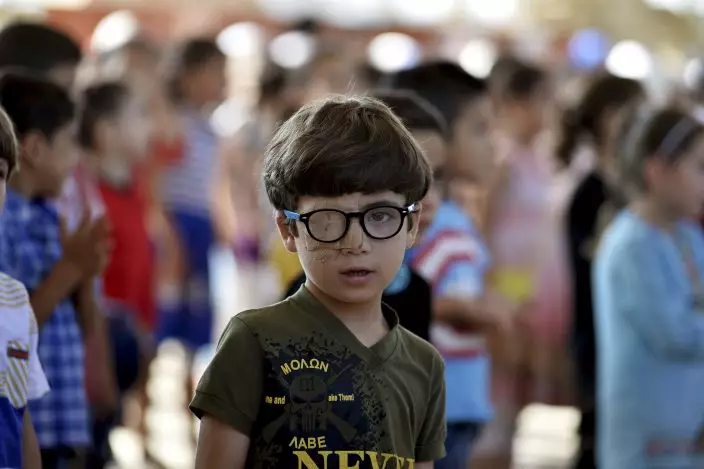
In this Tuesday Sept. 11, 2018 photo, Muhammed Halife, 5, who says was injured during bombing, stands at his school in the northern town of Jisr al-Shughur, Syria, west of the city of Idlib. Syrian government forces, backed by Russia and Iran, have been massing troops for weeks in preparation for an attack on Idlib province, the last major rebel stronghold in the country.The U.N. has warned that a battle will spark a humanitarian catastrophe. (Ugur CanDHA via AP)
"Idlib should not become the next massacre, the final massacre in the battles in Syria and common sense now needs to prevail," Commissioner Hanny Megally told reporters after the release of the report. The civilian population "should not be held hostage to a war on terror."
U.N. Special Envoy to Syria Staffan de Mistura said last month that 10,000 al-Qaida-linked fighters and their families are located in the densely populated region, which is now home to 2.9 million people. Many of those have been displaced from other parts of Syria in recent years.
Commission Chair Paulo Pinheiro said the presence of 3 million civilians in the area is "something that has to move the powers involved in the decision."
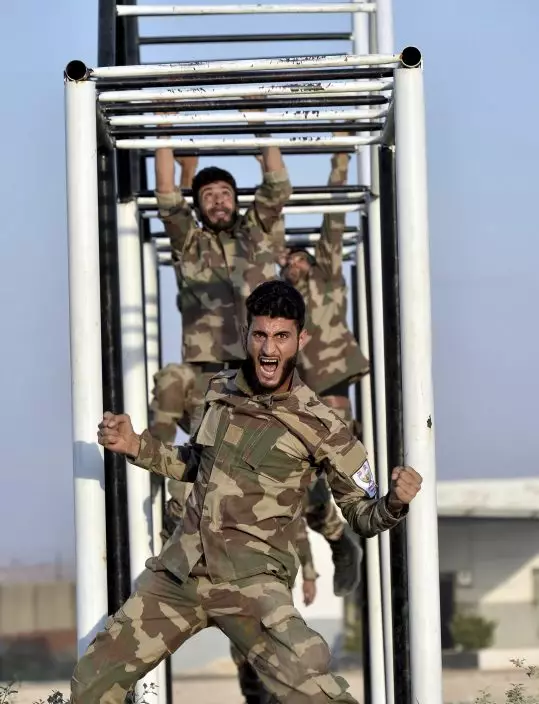
In this Tuesday Sept. 11, 2018 photo, Turkey-trained Syrian opposition fighters of the 'National Army' group formally known as Free Syrian Army, train in a camp in the Turkish-controlled northwestern city of Azaz, Syria. Syrian government forces, backed by Russia and Iran, have been massing troops for weeks in preparation for an attack on Idlib province, the last major rebel stronghold in the country. The U.N. has warned that a battle will spark a humanitarian catastrophe. (Ugur CanDHA via AP)
"You are fighting 10,000 armed people, terrorists, and the 3 million population will be the price to fight," said Pinheiro. "Of course we don't have anything against fighting terrorists but something has to be done to protect the rights of the 3 million people and (including) 1 million children."
"All the other disasters would be minor events compared to what can happen in Idlib," he said.
The inquiry blamed the government for chlorine gas attacks during its offensive on eastern suburbs of the capital Damascus known as eastern Ghouta and on Idlib as well.
"To recapture eastern Ghouta in April, government forces launched numerous indiscriminate attacks in densely populated civilian areas, which included the use of chemical weapons," the report said.
It said in the Idlib attack, government helicopters dropped at least two barrels carrying chlorine payloads in the Taleel area near the town of Saraqeb. The eastern Ghouta attack occurred in Douma.
"The Commission concludes that, on these two occasions, government forces and/or affiliated militias committed the war crimes of using prohibited weapons and launching indiscriminate attacks in civilian populated areas in eastern Ghouta," it said.
It said the Douma attacks occurred on Jan. 22 and Feb. 1. The report added that "specifically, the munitions documented were built around industrially produced Iranian artillery rockets known to have been supplied to forces commanded by the Government of the Syrian Arab Republic."
The U.S., Britain and France launched a missile attack in April to punish President Bashar Assad for another chlorine attack that they blamed the government.
The White House warned Assad last week that if he chooses to use chemical weapons in the offensive against Idlib, the U.S. and its allies "will respond swiftly and appropriately."
The report also said that Syria this year witnessed levels of internal displacement not seen before in the seven-year conflict, warning that a large proportion of those displaced currently languish in Idlib.
Syrian government forces captured wide areas around the country from insurgents earlier this year.
The inquiry said in a 24-page report that over 1 million Syrian men, women and children have been displaced so far this year "with most now living in dire conditions."
The areas include southern regions on the fronts with Jordan and the Israeli-occupied Golan Heights as well as eastern Ghouta and parts of the central province of Homs.
Turkish troops and Turkey-backed opposition fighters also captured earlier this year the northern Kurdish enclave of Afrin leading to the displacement of tens of thousands of people.
The report said most battles were marked by war crimes including launching indiscriminate attacks, deliberately attacking protected objects, using prohibited weapons, pillaging and forced displacement, including by armed groups.
"It is completely inexcusable that no party to this conflict adhered to their obligations toward civilians displaced by their military operations," Pinheiro said.



